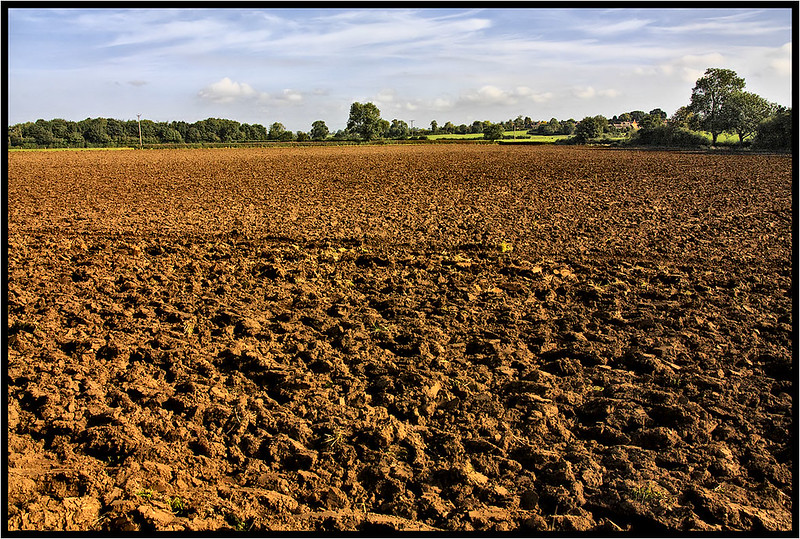Apr 14, 2022Foundation for Food & Agriculture Research awards over $3M
The Foundation for Food & Agriculture Research (FFAR) announced the recipients of the 2021 New Innovator in Food & Agriculture Research Award, an award granted to early-career scientists supporting research in one of FFAR’s Challenge Areas.
FFAR’s New Innovator in Food & Agriculture Research Award provides early-career scientists with funding to conduct audacious food and agriculture research. Cumulatively, the recipients are receiving a total of $3,742,557 over three years. For this program, FFAR does not require matching funds from applicants since these funds are provided by FFAR. However, several recipients secured $688,700 in additional matching funds for a total $4,431,257 investment.
“Our New Innovator Awardees are pursuing creative, audacious research to overcome challenges to our food and agriculture system,” said Lucyna Kurtyka, FFAR senior scientific program director, in a news release. “Thanks to these awards, they have one less hurdle to achieving pioneering results.”
2021 New Innovator in Food & Agriculture Research Award recipients include:
Dr. Hannah Birgé, The Nature Conservancy
A promise of big data is the ability to better understand and predict relevant social-ecological phenomena. However, modern machine learning and statistical analyses of big data often fail to embed the human context needed to uncover and predict these phenomena more fully. In this project, Birgé reframes the challenge of predicting cover crop adoption on working farms as social-ecological, rather than strictly technical. To do this she is engaging farmers to create regressions trees – a type of decision-making algorithm – that describe individual farm-level decisions to adopt cover crops. These regression trees can then be tested using large, remotely sensed biophysical datasets. By eliciting farmer expert knowledge in this way, Birgé can improve the efficacy of big data to predict not only when and where cover crops are likely to be adopted on the landscape but also why.
Dr. Ellen Bruno, University of California, Berkeley
Meeting future food needs requires effectively managing scarce groundwater. California is addressing this problem through the Sustainable Groundwater Management Act, which ensures better groundwater use and management. Bruno’s research is using the act as a case study to identify policies that enhance water sustainability and minimize regulation costs.
Dr. Barney Geddes, North Dakota State University
Nitrogen fertilizer increases crop yields to meet growing food demands, but because less than 50 percent of applied nitrogen fertilizer is used by plants, the excess fertilizer can threaten environmental and human health. Legume crops can create their own nitrogen through root nodule symbiosis with certain microbes. While research efforts are underway to engineer popular cereal crops to form root nodules, there is not a strong effort to generate a compatible microbial partner for these crops. Geddes’ research is investigating root nodule symbiosis to develop microbes that can thrive in the cereal microbiome, initiate nodule formation and self-adapt for efficient nitrogen fixation and nutrient exchange with their host plant.
Dr. Aditya Kunjapur, University of Delaware
Beneficial microbes in a plant’s rhizosphere – the root-soil interface – increase plant growth and soil health, but not enough is known about how microbes, plants and soil interact and how to ensure microbes do not spread outside of the target soil, which could have unintended consequences. Kunjapur is examining whether a laboratory microbe can provide long-lasting pathogen resistance to crops, while also preventing the microbe’s growth, allowing it to be contained to a specific area. This project furthers the development of targeted capabilities in crops to help them survive future stresses.
Dr. Hanna Poffenbarger, University of Kentucky
Plant roots are highly efficient at building soil organic matter, suggesting that increasing root growth in cropping systems can improve soil health. However, there are knowledge gaps that limit our ability to take full advantage of soil health benefits that roots could provide – for example, the contributions of living roots vs. decaying root litter to soil organic matter are unclear. Poffenbarger’s research is determining how living roots and decaying litter affect soil organic matter in low and high fertility soils and evaluating cover crops as a tool to capitalize on the benefits of roots in cropping systems.
To see a full list of award recipients, visit https://foundationfar.org/.
On average, FFAR garners $1.40 in match for every federal dollar allocated. FFAR is using the overmatch, the funding garnered on top of the 1:1 match, to fully fund the New Innovator Award program. Eliminating the matching requirements opens this award program to a broader pool of applicants.
The New Innovator Awardees’ promising research is opening new avenues of knowledge to deliver groundbreaking solutions to difficult challenges.

















